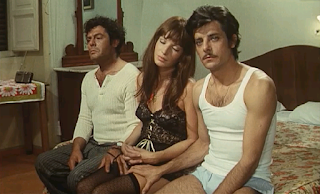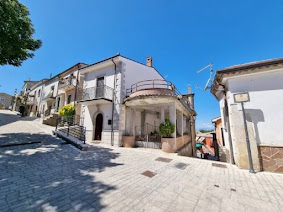NEW - Ettore Scola - screenwriter and film director
Miuccia Prada – fashion designer
Talented businesswoman studied politics and mime
Miuccia Prada, the businesswoman behind the fashion label Prada, was born Maria Bianchi on this day in 1949 in Milan. The youngest granddaughter of the fashion firm’s founder, Mario Prada, she took over the family business in 1978 having previously been a mime student and a member of the Italian Communist Party. Since then the company, which is famous for its luxury goods, has gone from strength to strength and taken over other labels. Prada has been listed as the 75th most powerful woman in the world, worth an estimated $11 billion. After graduating with a PhD in political science from the University of Milan, Maria Bianchi trained at the Piccolo Teatro di Milano in mime and was a performer for five years. As a member of the Italian Communist party she became involved in the women’s rights movement. She took the name Miuccia Prada in the 1980s, making her first impact on the fashion world with an unusual handbag design in 1985, which was followed by her first women’s ready-to-wear collection. The Miu Miu line was introduced in 1992 as a less expensive womenswear line. Read more…
_______________________________________
Carlo Filangieri - military general
Brilliant soldier who served several masters
The military general Carlo Filangieri, who fought for both the Napoleonic and Bourbon leaders of Naples in the 19th century and is best known for his suppression of the Sicilian uprising of 1848, was born on this day in 1784 in Cava de’ Tirreni in Campania. Filangieri was a key strategist for Joachim Murat, the flamboyant cavalry leader Napoleon had made King of Naples, achieving a major victory at personal cost in Murat’s ultimately failed campaign against Austria in 1815. When Murat was defeated and the Bourbon monarch Ferdinand IV was reinstated as King of Naples, Filangieri was retained, going on to serve his successor, Ferdinand II of the Two Sicilies, under whose orders he put down the revolution of 1848. Filangieri was from a noble family in Naples, the son of Gaetano Filangieri, a celebrated philosopher and jurist who had the title of Prince of Satriano, a town in Calabria, which Carlo would inherit. His family were staying at the Villa Eva in Cava de’ Tirreni at the time of his birth, because it was felt his father’s poor health would benefit from living away from Naples. Read more…
____________________________________
Antonio Ghirelli - journalist
Neapolitan writer specialised in football and politics
Antonio Ghirelli, a patriarch of Italian journalism, was born on this day in 1922 in Naples. As passionate about football as he was about politics, Ghirelli was equally at home writing about both. At different times he edited the three principal Italian sports daily newspapers, La Gazzetta dello Sport, Tuttosport and Corriere dello Sport, but also wrote with distinction in the editorial and opinion pages of such respected titles as L'Unità, Paese Sera, Avanti!, Corriere della Sera, Il Mondo and Il Globo. Sandro Pertini, who was President of Italy from 1978 to 1985, so respected his wisdom that he invited him to be head of the Quirinale press office. His politics were in line with those of the Socialist Pertini, as they were with Bettino Craxi, Italy’s first Socialist prime minister, for whom he was principal press officer during Craxi’s two spells in office. Ghirelli’s first taste of politics came at university in Naples, when he wrote for a young Fascist journal. Any sympathies he might have had with the Fascists soon disappeared, however, as Mussolini’s early socialist ideals became corrupted by his fervent nationalism and intolerance of political opponents. Read more…
_____________________________________
Antonio Priuli - Doge of Venice
Doge clamped down on Spanish ‘spies’
Antonio Priuli, who was the 94th Doge of Venice, was born on this day in 1548 in Venice. He took office in 1618 in the midst of allegations that the Spanish were conspiring to invade Venice. He immediately began a brutal process of ferreting out individuals suspected of plotting against La Serenissima, the Most Serene Republic of Venice. The so-called ‘spy war’ did not end until 1622 and resulted in the imprisonment and deaths of many innocent people. Priuli was the son of Girolamo Priuli and Elisabetta Cappello. He grew up to enjoy a successful career as a sailor and a soldier and married Elena Barbarigo, with whom he had 14 children. In 1618 Priuli was appointed provveditore, a type of governor, of Veglia, an island in the Adriatic, which now belongs to Croatia. That same year, following the death of Doge Nicolo Donato, Priuli was recalled from Veglia to become the next Doge. At the time it was believed that the Spanish, led by the Spanish Ambassador to Venice, Alfonso de la Cueva, 1st Marquis of Bedmar, had landed mercenaries on Venetian territory. It was thought Bedmar had successfully infiltrated the Venetian military. Read more…
.jpg)

.jpg)
.jpg)

.jpg)
.jpg)

.jpg)

.jpg)

.jpg)




.jpg)
